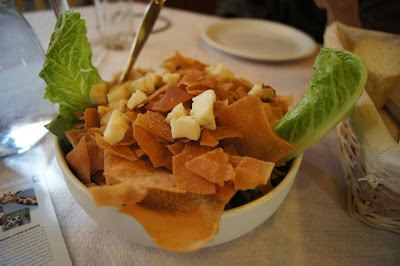Credits: Nam Ho Travel
Article written for www.natastravel.com
OVERVIEW :
Greece is one of the world's most popular tourist destinations,
ranking in the world's top 20 countries. According to the Greek Ministry of
Tourism, the nation received about 17 million visitors from January to mid
August 2007, a large number for a small country of 11 million. Visitors are
drawn to the country's beaches and reliable sunny summer weather, its
nightlife, historical sites and natural beauty.
ATTRACTIONS :
Visit the Historic Sites in Athens
When considering things to do in Greece, it only seems natural to
schedule an itinerary for Athens. Athens has some of the most famous
attractions in Greece, from the Acropolis to the Parliament Building at
Syntagma Square. The world class museums in Athens, like the National
Archaeological Museum and the Benaki Museum, are more than worthy of a visit,
and will give added insight and understanding into the many historic Greece
attractions spread throughout the country. Wander around the ancient agora and
visit the Kallimarmaron stadium to see where the ancient Panathenaic Games were
held.
Soak Up Some Sun in the Greek Islands
This is easily among the top things to do in Greece. Especially in the
summer, the beaches of Greece are at the top of the list of attractions in
Greece. While you can find plenty of isolated and serene beaches on both the
mainland and the islands, the summer nightlife found at many island beaches is
among the best in all of Europe. On islands like Crete, Santorini and Mykonos,
the beaches are the place to be in the summer. Scores of tourists and native
Greeks head to the Greek islands beaches to enjoy the refreshing blue waters of
the Aegean Sea and take in the evening sunsets. There are also many naturist
beaches in the Greek islands, if you are looking for them.
Take in a Show during the Hellenic Festival
Every summer in Athens, the Hellenic Festival is in full swing, and it
is among the most popular and significant events in Greece. The Hellenic
Festival celebrates the performance arts and at the Odeon of Herodes Atticus
theatre, musical and dance performances by international and national artists
are featured. The ancient theatre provides a stunning venue for such shows.
There are also popular music concerts held during the festival atop Lykavittos
Hill and theatre performances at the Ancient Theatre of Epidaurus and the
Little Theatre of Epidaurus. Where better to see a recreation of a Greek
tragedy than in Athens?
Take a Bus and Guided Tour to Olympia
Among the many attractions in Greece, the ruins at Olympia are one of
the most popular. From Athens, or the city of Pyrgos, you can arrange a guided
tour to these ruins to get the full appreciation. Tourist attractions in Greece
rarely get more historically significant than this. Olympia was the location
for the ancient Olympic Games and here you will find the remnants of an old
stadium and sprinting track, as well as the ruins of the once great Temple of
Zeus. The Temple of Zeus once housed the great Statue of Zeus, which was one of
the Seven Wonders of the Ancient World.
Visit the Soaring Rocks and Monasteries of Meteora
First of all, the landscape is amazing here. The rocks of Meteora are a
conglomeration of natural rocks at the edge of the Pindus Mountains that rise
to form pinnacles in the sky. These rocks were a place of refuge for monks who
built an amazing series of monasteries dating back to the 13th century. Of the
original 24 monasteries, only 6 remain, and they are almost unbelievably
perched among the rocks. The Church of the Metamorphosis is the most famous
remaining monastery and offers a wonderful small museum. This area easily ranks
among the best Greece attractions.
Take a Wine Tour on the Islands of Crete and Santorini
Greek wine is steadily gaining popularity, and as if these islands
weren’t already among the top tourist attractions in Greece, you can add a wine
tour on them to your list of things to do in Greece. On the island of
Santorini, the volcanic-rich soil makes for some unique tasting wines. On
Crete, wine production can be traced back in history to the Minoans, and
visiting one of today’s wineries is a nice diversion in between enjoying the
mountains and beaches of Crete.
GENERAL INFORMATION :
Capital of Greece:
Athens
Official language: Greek
The currency: Euro(€)
Time Greece: GMT +2
WEATHER:
Greece has a Mediterranean
climate with plenty of sunshine, mild temperatures and a limited amount
of rainfall.
Due to the country's geographical position, its rugged relief and its
distribution between the mainland and the sea, there is great variation in
Greece's climate.
In summer, the
dry hot days are cooled by seasonal winds called the meltemi, while mountainous
regions have generally lower temperatures.
The winters are
mild in lowland areas, with a minimum amount of snow and ice, yet, mountains
are usually snow-covered. Moreover, a common phenomenon is the occurrence of
different climactic conditions during the same season (for instance, mild heat
in coastal areas and cool temperatures in mountainous regions).
PASSPORT AND VISA:
Please check with your Travel Agent.
This article was submitted by Nam Ho Travel (A member of NATAS)
This article was submitted by Nam Ho Travel (A member of NATAS)
Previous blog entries written on Greece: A trip down to Athens, Greece and My fairytale, my kingdom. My castle, my knights.
![National Association of Travel Agents Singapore [NATAS] |](https://blogger.googleusercontent.com/img/b/R29vZ2xl/AVvXsEiw9HI4uL026U-B8Kz1WHPyqJeQ-U2kZK1uyMTzf89X9WQD54ucW6UjHIyIJc6dDlzsH1Y_JhTTv0_v4aYDemuzyff1SxrdOHJl26LEcrpq8MiO5_7Oc8sSE_nsIwGBeEuZyM0jsB3rjUE/s1600/sub_header.jpg)































